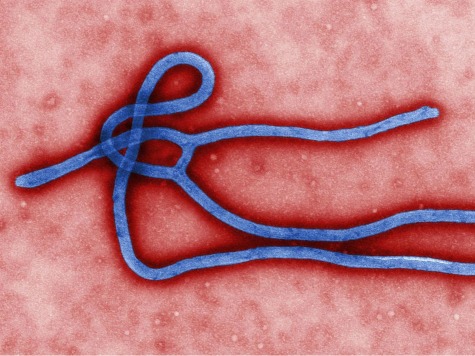
Johnson & Johnson’s Crucell unit, along with the National Institute of Allergy and Infectious Disease (NIAID), decided to move forward with a two-shot Ebola vaccine to protect a person’s immune system. The vaccine will target the Zaire strain, which is causing the outbreak in West Africa.
“Patients are at the heart of everything we do,” said Dr. Paul Stoffels, Chief Scientific Officer. “Our primary goal in this escalating Ebola epidemic is to assist governments in protecting health care workers, families and populations who are at high risk of being infected with Ebola as soon as possible in an effort to stop the disease from spreading further. With a strong heritage in collaborative partnerships and a proven track record in the rapid development and access of innovative products, we aim to ultimately eradicate deadly diseases like Ebola and save lives around the world.”
Johnson & Johnson will work with Bavarian Nordic in Denmark to produce the vaccine. The first shot primes the immune system while the second shot boosts “the immune response.” The vaccine includes “Crucell’s adeno-platform based vaccine,” which is “a modified human cold virus to get bits of Ebola’s genetic material into cells inside the human body.” The Bavarian Nordic’s MVA-BN platform, which contains “the basis of the smallpox vaccine registered in Canada and Europe.” Over 8,000 people combined received these vaccines, which proves each one is safe and effective. The companies hope the combination effort pushes through the vaccine as soon as possible. Both companies hope the drug will be available for humans by 2015.
“In light of the current emergency in West Africa and given the evident, huge unmet medical need, we are stepping up our efforts and accelerating the Ebola program currently in pre-clinical development,” said Dr. Johan Van Hoof, Global Head, Infectious Diseases and Vaccines, Janssen and Managing Director, Crucell. “We recognize the urgency of the situation and the need to collaborate with multiple partners to develop treatment and preventive solutions for Ebola.”
There is no cure or vaccine for the Ebola virus. The death toll is over 1,900. Dr. Kent Brantly and medical worker Nancy Writebol received experimental drug ZMapp after Ebola infected them in Liberia. Both returned to America to receive more treatment at Emory University Hospital in Atlanta, GA and recovered. The National Institutes of Health (NIH) is testing an Ebola vaccine manufactured by GlaxoSmithKline on humans.

COMMENTS
Please let us know if you're having issues with commenting.